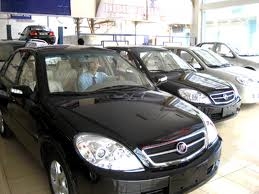Automakers eye tax relief
 At the Vietnam Business Forum (VBF) held in Hanoi early this month, car-makers proposed that the automotive and motorcycle manufacturing be treated as a hi-tech industry with investment incentives as at this time the industry does not enjoy any one under Vietnam’s hi-tech industry development orientations.
At the Vietnam Business Forum (VBF) held in Hanoi early this month, car-makers proposed that the automotive and motorcycle manufacturing be treated as a hi-tech industry with investment incentives as at this time the industry does not enjoy any one under Vietnam’s hi-tech industry development orientations.
“Strong evidence and international studies show that the automotive industry is a key player in technological development within numerous countries. Moreover, the industry’s development is strongly correlated with the development of skills, country’s know-how and ultimately its education system,” VBF’s Automotive Working Group, which was set up for the first time in VBF’s history, said in a statement released at the forum
“The idea will help develop the auto manufacturing industry in Vietnam, especially the supporting industry due to incentives in taxes on materials, technology and entrepreneur turnover,” said Michael Behrens, Mercedes-Benz Vietnam’s general director.
The proposal of car-makers, especially foreign ones, came in the context of a gloomy auto market. Vietnam’s car sales within the first eleven months hit 9,570 units, a 28 per cent decrease compared to the same period of last year, according to the latest report from Vietnam Automobile Manufacturers’ Association.
Although multi-national companies in the automotive sector entered the market nearly two decades ago, the most important parts, such as engines and gearboxes, are imported from branches of parent companies or from foreign suppliers.
Foreign car-makers like Toyota, Honda, Ford, Mitsubishi and General Motors are complaining that high taxes imposed by the Vietnamese government on automotive industry have deterred them from expanding investments in the nation. At present, local assembly kits face an average import tax of 20 per cent, while completely-built unit vehicles bear a 68 per cent -78 per cent import tax.
The Automotive Working Group in the statement said new tax incentives would encourage car-makers to expand in Vietnam, especially in supporting industries. Of paramount importance, automakers say, are investments for certain high value-added components such as engines, engine parts and electrical systems, which would help the transition of the country known for a pure cost base advantage to a more sustainable technological advantage.
What the stars mean:
★ Poor ★ ★ Promising ★★★ Good ★★★★ Very good ★★★★★ Exceptional
Related Contents
Latest News
More News
- Hermes joins Long Thanh cargo terminal development (February 04, 2026 | 15:59)
- SCG enhances production and distribution in Vietnam (February 04, 2026 | 08:00)
- UNIVACCO strengthens Asia expansion with Vietnam facility (February 03, 2026 | 08:00)
- Cai Mep Ha Port project wins approval with $1.95bn investment (February 02, 2026 | 16:17)
- Repositioning Vietnam in Asia’s manufacturing race (February 02, 2026 | 16:00)
- Manufacturing growth remains solid in early 2026 (February 02, 2026 | 15:28)
- Navigating venture capital trends across the continent (February 02, 2026 | 14:00)
- Motivations to achieve high growth (February 02, 2026 | 11:00)
- Capacity and regulations among British areas of expertise in IFCs (February 02, 2026 | 09:09)
- Transition underway in German investment across Vietnam (February 02, 2026 | 08:00)

 Tag:
Tag:


















 Mobile Version
Mobile Version